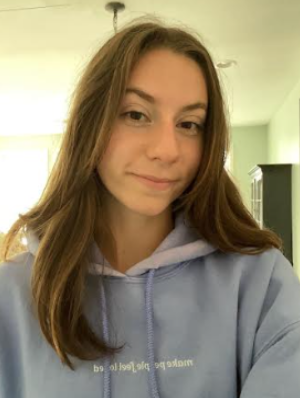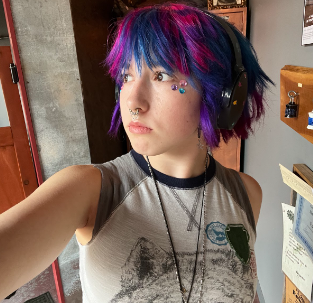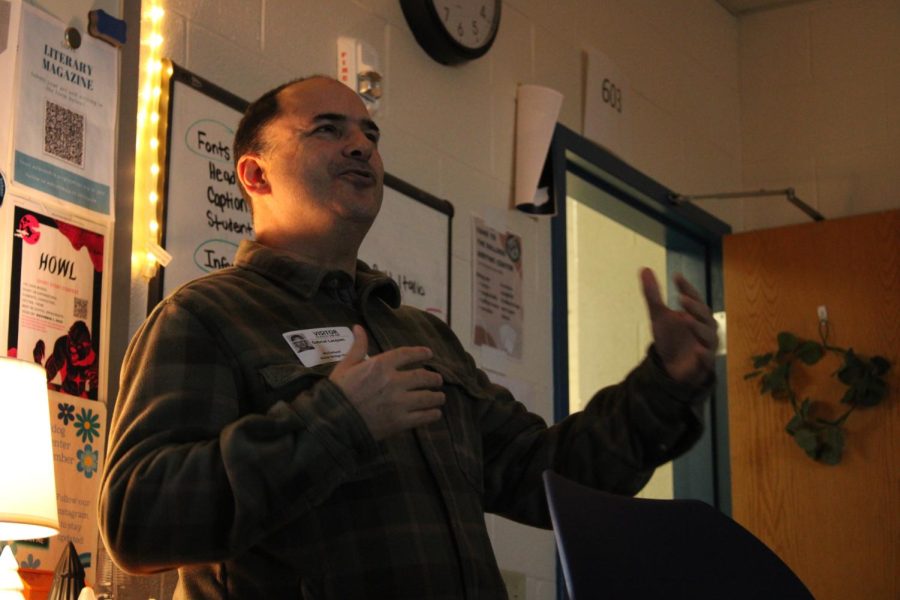An Interview with Gabe Lacques
“USA Today” writer Gabe Lacques has covered Major League Baseball for nearly 18 years, but his career as a reporter has celebrated much more than home runs and World Series games. Starting in 1995 as a general sports reporter, Lacques has seen journalism transition from print-only to the almost completely digitized content of today. In an interview with the “Bulldog Tribune” staff, Lacques shared important insights about his career along with some of his frustrations and hopes for the future of journalism.
Can you describe your career to us?
I’ve been doing this since 1995, which is kind of crazy. That’s when I first started my first full-time job in a town called Temecula, California. Small. It’s deep, deep in the suburbs, and then I started covering high school sports. I did some freelance work in college at the “LA Times”, which was really cool.
That was a great time just to be a stringer and get kind of real experience that way. Then, I struck out and got my first full-time job there. I moved to a larger newspaper group in L.A., and that was when I got into covering baseball. I was a beat reporter covering the Los Angeles Angels, which was very demanding because the baseball season is about 162 games long. That was a matter of being on the road about 150 nights a year. The first year that I covered the Angels, they won the World Series, way back in 2002. I did that for four years, and then a former colleague of mine told me about an opening [at “USA Today”] to be an editor at the baseball desk. So I moved from California to here.
How has the news industry changed since you entered it?
Our office at “USA Today” is in Tyson’s Corner. We have gone from owning the building to owning a chunk of it to leasing up space in it. It has been an interesting point in time to be a journalist. When I got there it was like a country club–it was so nice. There was a juice bar. There was a gym. There was a salon. You’ve probably seen this big glass building on the side of the road; it was all ours. It was incredible. We did very good work; we still do very good work. But from that point in time on, 2005 until now, we have gone through so many series of layoffs and buyouts and furloughs…as the industry has changed.
2008 [was] a very bad year in a lot of ways. It was really bad for journalism because the business model was already kind of shaky. The internet was taking over. Then, the economic downturn came [and] advertising really tanked. All of a sudden we really had to switch how we were doing business. We had to suddenly shift to digital reporting and de-emphasize the newspaper.
Suddenly, we had to publish stories immediately. There wasn’t a deadline of “The newspaper’s coming out overnight. Your stuff has to be done by 8:00 p.m,” it was, “Oh, my gosh. Tom Brady just retired. We need the story up on the internet in five minutes.” Everything is instantaneous. The news cycle goes so quickly to where somebody who was a big deal at 10:00 a.m., may have been moved on from by 3:00 p.m.
How is journalism evolving today?
Journalism, in a way, has been democratized, in the sense in that you can publish anything and put it online. You can start your own blog; you can put it on your Facebook page; you can put it on Medium, whatever the case might be.
That is an interesting way to kind of handle the business model because rather than waiting around to get laid off–which, in my most cynical hour, is kind of what it feels like sometimes–you can say, “To heck with it. I’m going to start my own thing. I’m going to do my own reporting, do my own writing. I’m going to try to get subscriptions and generate revenue myself,” and eliminate the middleman. It is a really interesting way to go. It’s entrepreneurship, basically, in the form of journalism.
What made you stay in sports journalism?
I was really into sports, and I was really into news. That’s where those two things just kind of converge. “Sports Illustrated” was amazing. I can remember, I’m a bit of a savant this way, but I can remember specific terms or phrases, specific stories that had an effect on me.
What do you think is the most exciting moment of your career so far?
There was one time, 2015, I walked into the clubhouse of the Kansas City Royals after they won the World Series. I kind of turned the corner, and it just felt very–raw isn’t the right word–but it just felt very human. There’s something about seeing people for seven months of the year who are so cliche–“We’re just gonna take one game at a time. As best I can. Got another game tomorrow. We’ll see how it goes.”–and then there is a finality to something. That gets me everytime. We can be very contrarian. So it’s kind of intense when you let your guard down and realize that people are experiencing something very pure.
What does collaboration with fellow journalists look like?
That can come in a lot of different forms. When I started at “USA Today” there were so many editors. One disgruntled reporter was quite fond of saying, “We have editors editing editors,” which might not have been too much of an exaggeration. Sometimes there will be brainstorming meetings. Back when we were in the office we would go to a conference room and everybody would fire off story ideas and debate them and officially assign them.
What advice do you have for aspiring journalists?
A bit of advice that I think always applies is read as much as you can. Find people that you enjoy reading or respect and just read the heck out of them. You can get better by osmosis in a sense. Just continue to read and absorb things.

Jillian Wallner is a senior, a returning writer at the "Bulldog Tribune", and involved in multiple groups at Stone Bridge, including PEER and the cross...

Lex Chapman is currently a senior at SBHS and is a returning section editor for the "Bulldog Tribune". Lex also plays an active leadership role in the...


